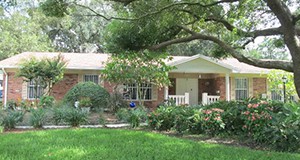Florida-Friendly Landscaping protects Florida’s unique natural resources by conserving water, reducing waste and pollution, creating wildlife habitat, and preventing erosion. This 12-page document will help the reader with selecting and writing a landscape contract that follows Florida-Friendly Landscaping principles. Written by Adam Dale, Claire Lewis, Esen Momol, Don Rainey, John Bossart, C. J. Bain, Jen Marvin, Lynn Barber, Norman Leppla, Gary Knox, and Thomas T. Ankerson and published by the UF/IFAS Environmental Horticulture Department, June 2018.
http://edis.ifas.ufl.edu/ep347
Tag: Thomas T. Ankersen
Streamlining Resiliency: Regulatory Considerations in Permitting Small-Scale Living Shorelines in Florida

Living shorelines offer a valuable and environmentally friendly means of stabilizing shorelines while restoring and enhancing estuarine habitats. Because living shorelines are considered environmentally beneficial, several agencies have coordinated efforts to reduce the regulatory burden required to construct them. This 8-page fact sheet written by Thomas T. Ankersen, Alexandra Barshel, and Valerie Chesnut and published by the Florida Sea Grant College Program, UF/IFAS Extension, describes how to ensure that a living shoreline project will be successful and not run into any permitting difficulties.
http://edis.ifas.ufl.edu/sg155
